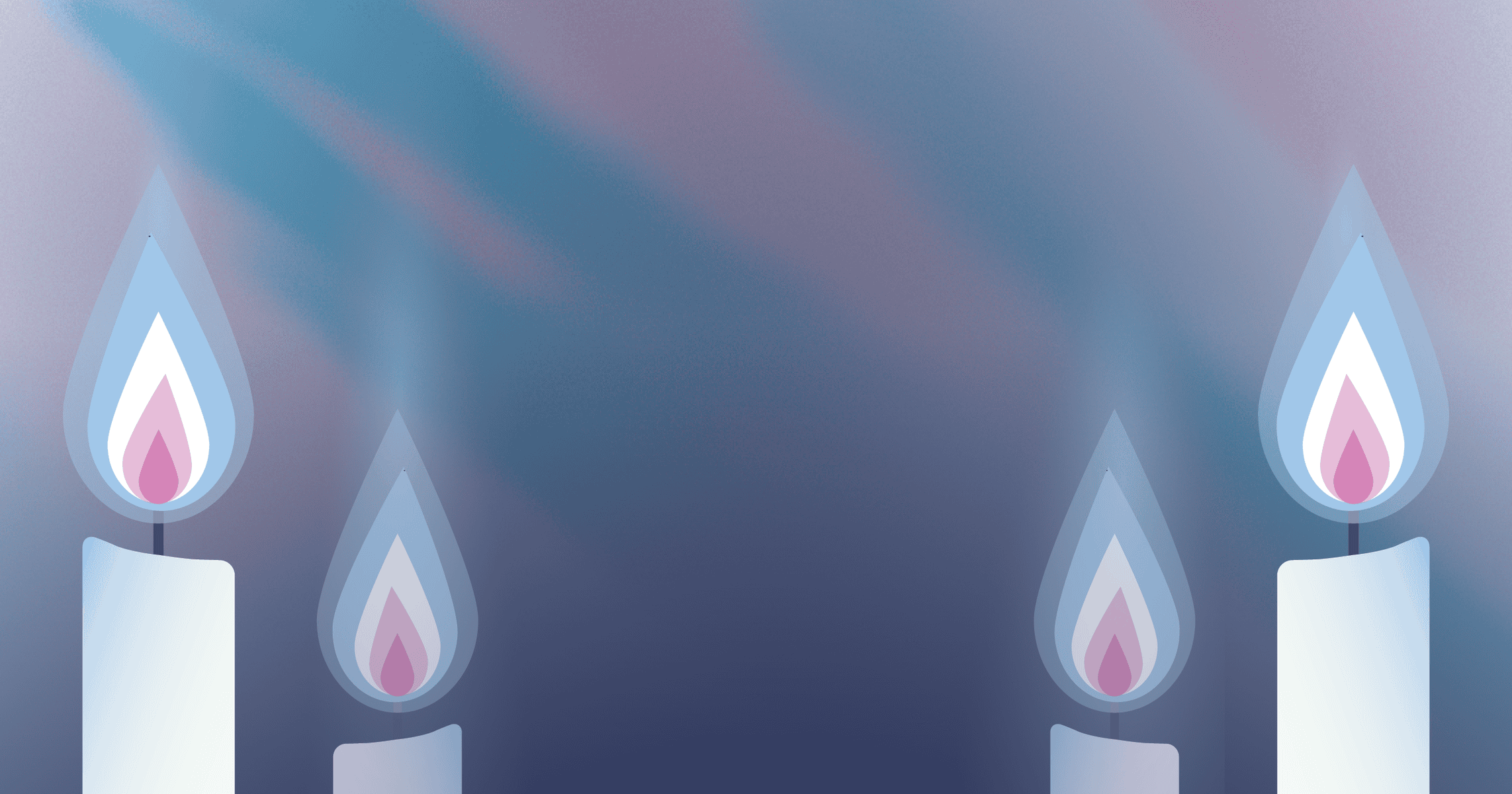Every year on November 20th, family members, allies and souls who identify as LGBTQ—particularly transgender or gender nonconforming individuals—come together to honor those who have been killed in the last year simply for existing. It is the annual Transgender Day of Remembrance. The event started with the memorial of Rita Hester, a transgender activist who was murdered in 1998.
Over time, the violence against transgender individuals has steadily increased and more perish from hate-motivated violence each year than the year before. The statistics of violence and aggression against the transgender community are alarming, and are probably just the tip of the iceberg. Many murders may not be reported in such a way as to be recognized as a hate crime against transgender individuals. Indeed, one just has to be perceived as transgender or gender nonconforming to be at risk. Violence, harassment, and aggression against the community is a common and growing occurrence.
The vigils aren’t just about statistics, however. The names of those killed in the last year will have their names spoken individually. They will be memorialized as individual unique people, and not just a statistic with the label transgender.
Our names reflect our individuality. Naming things may be one of the oldest professions. In the book of Genesis, God brought the animals to Adam to see what he would call them. Much of science today is about similarly naming things that can be visualized, categorized, or reproduced. We actually understand very little, but we are extremely good at naming things as symbolic of their nature or predictive of future events.
Family and individual names in cultures around the world have both historical and current meanings. Many transgender and gender queer individuals change their names when they come out as transgender and/or transition. We are the same person as before, but public renaming reveals a part of ourselves core to our previously undisclosed being. The old name, meaning, and often gender expectations may no longer be appropriate. A new name reflecting the integrity and courage of publicly expressing our true identity is often celebrated with a re-naming ceremony. God changed Abram’s name to Abraham and Saul to Paul in part to reflect new identities, but mostly to reflect a promise for the future. The renaming of a transgender individual, likewise, often reflects the promise of the future in addition to the integrity of the moment.
Claiming a new name is not without cost. Legally changing a name on all forms of identification, deeds, accounts, diplomas, and one’s birth certificate (where it is possible) can be a complex and costly process. In my own experience doing so, I met with varying degrees of hostility, regulations, and passive-aggressive responses requiring either stamina or legal action to resolve.
The scrutiny often begins with the requirement to post an impending court proceeding to change a name in a local newspaper. This creates a public record forever linking the old name with the new. Many organizations report name changes with “also known as” linking the old with the new. Changing our name can subsequently place our transgender status in public view. Many cannot afford to legally change their name but claim their true name for common use, creating discrepancies between legal names and IDs with public expression. Being “outed” is always a risk.
Our names have been weaponized against us, but we still claim our identity.
Whether the name change is legal or social, the simple claiming of a name is often weaponized against the community. “Dead naming” is the term given when folks refuse to use or acknowledge a transgender person’s legal or chosen name. This can be inadvertent, but is frequently used as a means of hostility against an individual. It is a means of saying “you are not legitimate.” In the wrong context, dead naming can out someone in an unsafe environment, and this is often the intent. Indeed, it is not just hostile individuals who would weaponize a name or identity. In like manner, government attempts to remove LGBT status from census-taking suggests strongly that we are not legitimate.
For a transgender person, therefore, our name is not simply something our parents decided at birth. It represents who we truly are and the promise for the future. It is a name we have often fought for. Our names have been weaponized against us, but we still claim our identity because it carries so much positive meaning. The Transgender Day of Remembrance elevates the lost above the statistics. It celebrates the individual identities and names of the victims and therefore celebrates who they truly were, but simultaneously laments the loss of their future promise, forever erasing all they could have been.
We also need to honor those who are not named or numbered. We need to recognize that many were victims of similar crimes but not reported as such. We need to acknowledge the growing violence against the community. When governments and social institutions at all levels portray the community as confused or sub-human and not worthy of being recognized, counted, medically cared for, protected from discrimination, allowed to serve our country, or even to use appropriate public restrooms, we cannot simply blame violence on a fringe element in society. Much still needs to be done.
We also need to recognize that the overwhelming majority of those killed are transwomen of color. We need to continue to acknowledge and work to correct the disparities in our society with respect to race, gender, and LGBTQ status. As the Transgender Day of Remembrance teaches, the intersectionality of multiple marginalized groups has proven all too often to be fatal. We need to recognize those who did not die but were nevertheless the subject of violence, harassment, discrimination, and emotional abuse. We need to lament the fact that a highly disproportionate percentage of homeless children identify as LGBTQ, meaning many are homeless just for being who they are.
When governments and social institutions at all levels portray the community as confused or sub-human and not worthy of being recognized, counted, medically cared for, protected from discrimination, allowed to serve our country, or even to use appropriate public restrooms, we cannot simply blame violence on a fringe element in society.
I am Christian and transgender. These are not incompatible. They are both integral to my physical, emotional, and spiritual health. Going public with this reality brought the loss of family and friends and rejection from many faith-based communities. I am extremely thankful for the family and friends and my current congregation who stand by me.
Before I claimed my reality, I never fully understood the meaning of grace or Christ’s offer of rest for the weary and heavy laden. Claiming my name brought a deep understanding of both and a desire to share with others. Grace sustains me and allows me to face my own limited rejection. I pray that those who are now lost to us have entered the rest of God and that their families are sustained by God’s grace.
I believe in the future. Scripture teaches, “There is neither Jew nor Greek, there is neither slave nor free man, there is neither male nor female; for you are all one in Christ Jesus” (Galatians 3:28). This passage recognizes the gender, race, and socioeconomic boundaries that divide us now, and shows the hope of their dissolution. These distinctions should not divide us.
But today we mourn with those who mourn, with the promise that those who mourn will be comforted. We remember our lost by their names. Jesus wept at the loss of His friend Lazarus, but called him by name back to life. Jesus also wept for the lack of faith in his day. We cry for our dead by name, but let us not lose our faith but claim the grace, rest, and peace of God. Let us also model unity in love and not return hate with hate.
God bless,
Allison.
Allison is an alumna of Oriented to Love and a passionate youth and family faith advocate.


